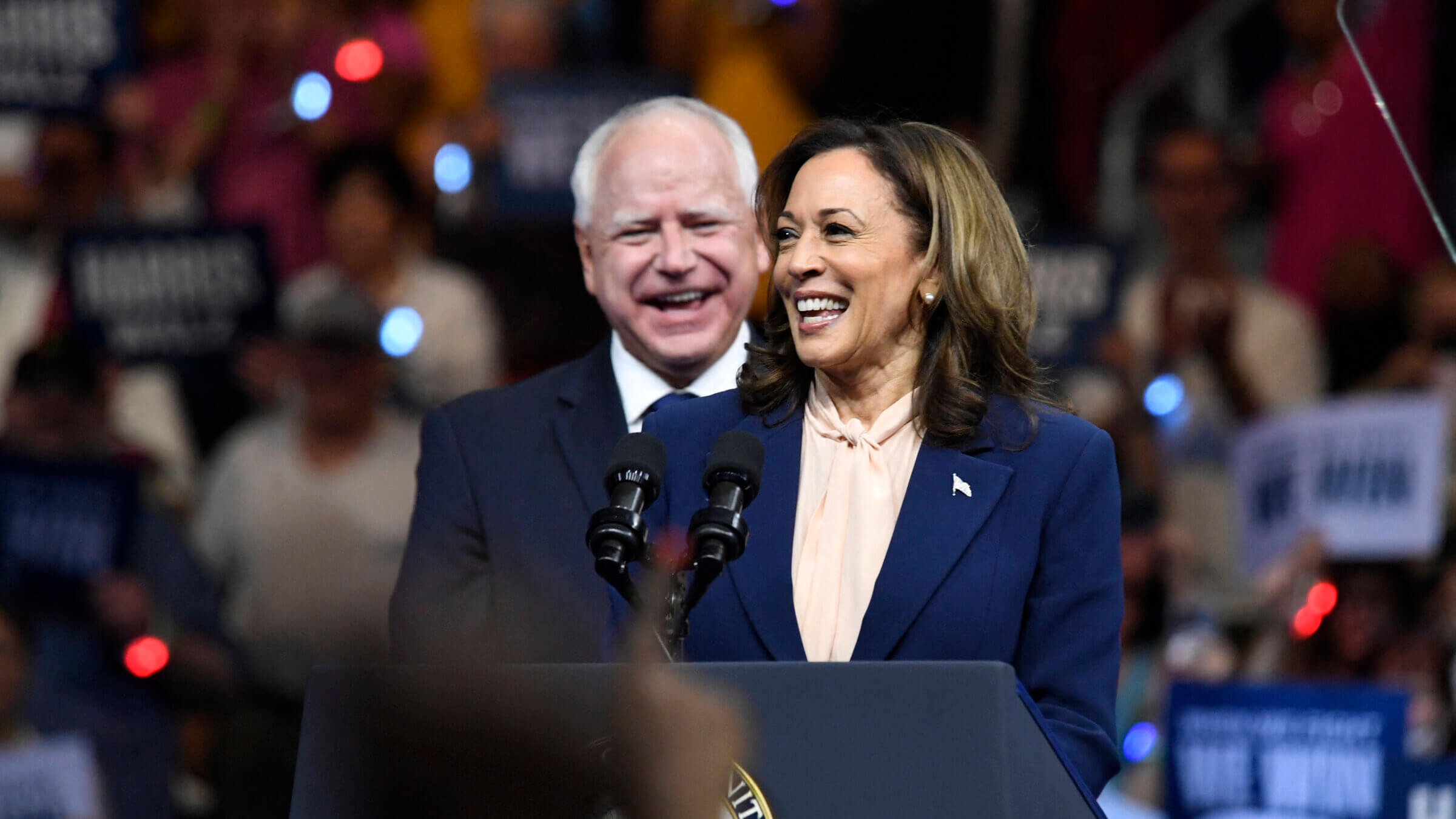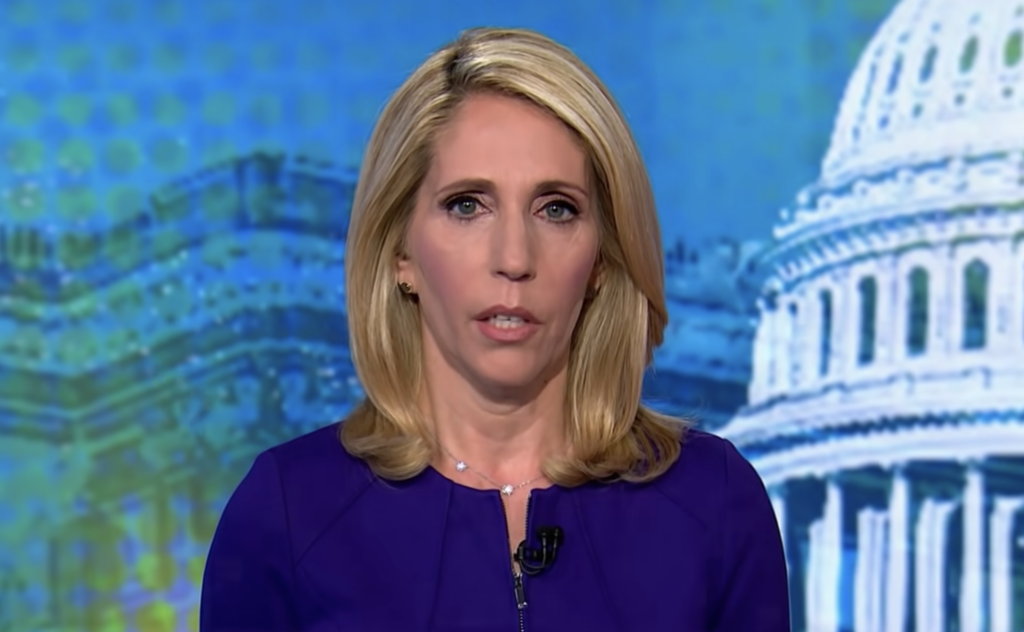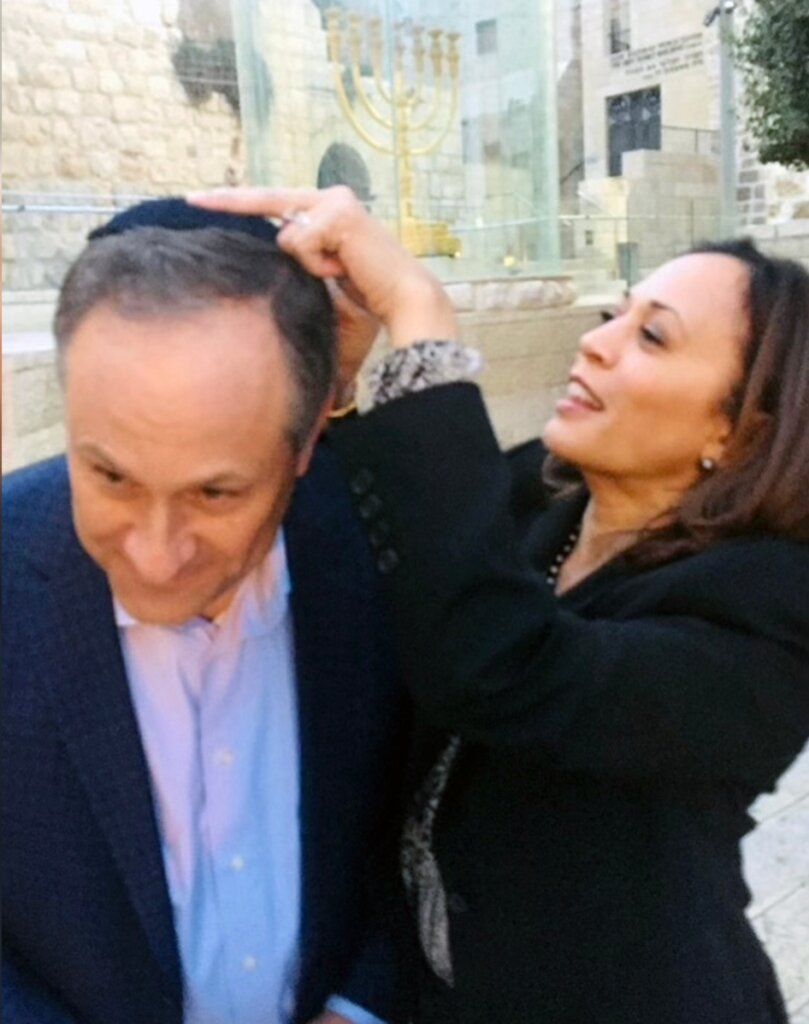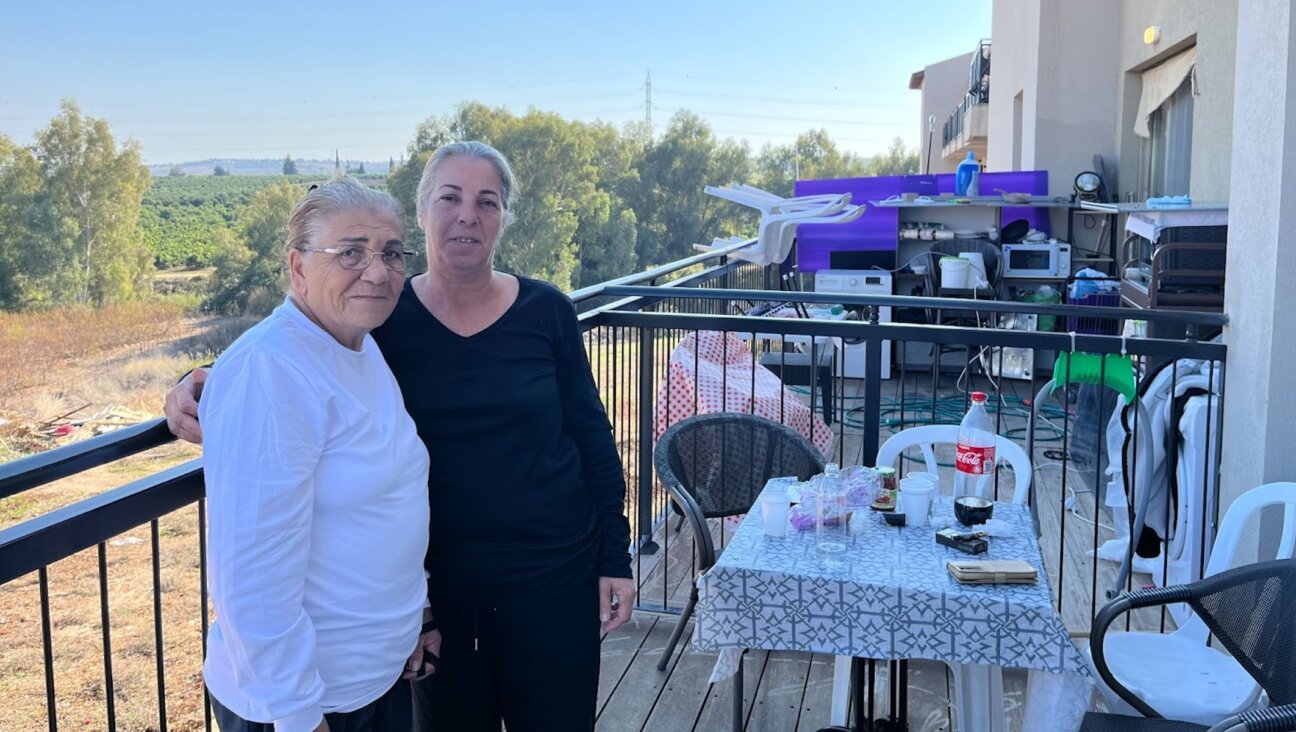The Jewish guide to Kamala Harris’ CNN interview
The Democratic presidential candidate’s first interview since cinching the nomination will be conducted by a Jewish journalist, Dana Bash, CNN’s chief political correspondent

Harris and Walz speak at Temple University’s Liacouras Center in Philadelphia Aug. 6. Photo by Matthew Hatcher/AFP via Getty Images
Republicans have hounded Vice President Kamala Harris for failing to open herself up to a sit-down interview with a reporter since she snagged the Democratic presidential nomination. CNN this week announced that she will take questions on Thursday with her running mate, Gov. Tim Walz of Minnesota, from Dana Bash, the news network’s chief political correspondent.

The hourlong interview will air on CNN and stream on CNN.com at 9 p.m. ET.
Bash, who is Jewish, has a reputation as a tough and fair journalist, and co-moderated June’s presidential debate between former President Trump and President Joe Biden, where the president’s unsteady performance led him to bow out of the race and endorse Harris.
Harris is enjoying a surge in the polls after an energized Democratic National Convention last week, where she and others delivered tightly controlled messages designed to appeal to a wide swath of voters. Bash’s job is to get Harris to talk substantively about her plans. That risks alienating some voters, particularly on the most volatile issue within the Democratic party — Israel’s military campaign in Gaza.
Here’s how Bash might approach Harris on that and other topics of particular interest to Jewish Americans, who are among the most loyal Democratic voters.
The war in Gaza
Harris at the DNC reassured pro-Israel voters that she “will always stand up for Israel’s right to defend itself.” In the next breath she expressed horror at the “scale of suffering” in Gaza, signaling to the “Uncommitted” movement, the 700,000 who protested Biden’s staunch support for Israel in the Democratic primaries.
Walking the line between constituencies important to her in a tight race against Trump worked at a convention where most delegates badly wanted the party to rally around Harris. But Bash will likely press Harris for specifics. Will there ever come a point where the U.S. should cut off military aid to Israel? What does Harris believe is the main obstacle to an elusive ceasefire? How would her approach to the conflict differ from Biden’s?
And one particular point Bash could press would be the DNC’s refusal to give a Palestinian a speaking slot at the convention. Did Harris agree with that decision?
Harris may find it useful to criticize Israeli Prime Minister Benjamin Netanyahu, an unpopular figure among American Jews, and the ways in which he has made it tougher to achieve a ceasefire — as opposed to criticizing Israel more directly.
As at the convention, expect Harris to couple any sympathy for Israelis with sympathy for Palestinians, and to reiterate her longstanding position that a two-state solution is the only viable path to peace in the Middle East.
Bash may want to ask Walz about Gaza too, given the centrality of the debate in Democratic politics and the Minnesota governor’s inexperience in international relations.

Questions on Gaza naturally segue to Iran.
Bash may ask Harris about reviving the Iran nuclear deal Trump withdrew from during his presidency. Pursuing a deal to limit the development of Iran’s nuclear program is part of the Democratic party platform, and Iran has recently expressed a willingness to resume talks. But Harris may not want to appear too interested in working with Iran so soon after its April airstrikes against Israel in retaliation for assassinations of Iran-backed military leaders, and its continuing threats to target Israel.
Rising antisemitism in the U.S.
This isn’t a subject that Bash or Jake Tapper, her Jewish co-moderator, raised during June’s Biden-Trump debate. And despite American Jews’ concerns over antisemitism, particularly on college campuses, the topic isn’t considered a major campaign issue. But that may be all the more reason that Bash might want to bring it up on Thursday.
Bash, who belongs to Temple Micah, a Reform synagogue in Washington, D.C., and whose grandparents escaped the Nazis, has expressed shock at mounting incidents of antisemitism in the U.S. And last year she anchored the CNN documentary Rising Hate: Antisemitism in America.
If Bash does ask about antisemitism, Harris can lean on her marital ties.

The vice president has a Jewish husband, Doug Emhoff, who spoke engagingly at the DNC about how she accompanies him to High Holiday services and has encouraged him to deepen his faith. He talks about affixing a mezuzah to the White House’s doorposts.
Harris, for her part, frequently invokes “Momala,” the Yiddish-inflected name Emhoff’s children call her. And she does a loving impression of her Jewish mother-in-law.
More substantively, she can also point to the first national plan to combat antisemitism — the public face of which is Emhoff — released by the Biden administration in May.
While there is evidence that a small amount of Jewish support is slipping to Trump over perceptions that Harris will not strongly support Israel, Trump has also offended many Jewish Americans by engaging with far-right influencers, some of whom — including Nick Fuentes and Kanye West, who now goes by Ye — have spouted antisemitic beliefs.
And on several recent occasions Trump charged that any Jewish person who votes for Democrats should “have their head examined,” a charge the Harris campaign called antisemitic.
A message from our Publisher & CEO Rachel Fishman Feddersen

I hope you appreciated this article. Before you go, I’d like to ask you to please support the Forward’s award-winning, nonprofit journalism during this critical time.
We’ve set a goal to raise $260,000 by December 31. That’s an ambitious goal, but one that will give us the resources we need to invest in the high quality news, opinion, analysis and cultural coverage that isn’t available anywhere else.
If you feel inspired to make an impact, now is the time to give something back. Join us as a member at your most generous level.
— Rachel Fishman Feddersen, Publisher and CEO























